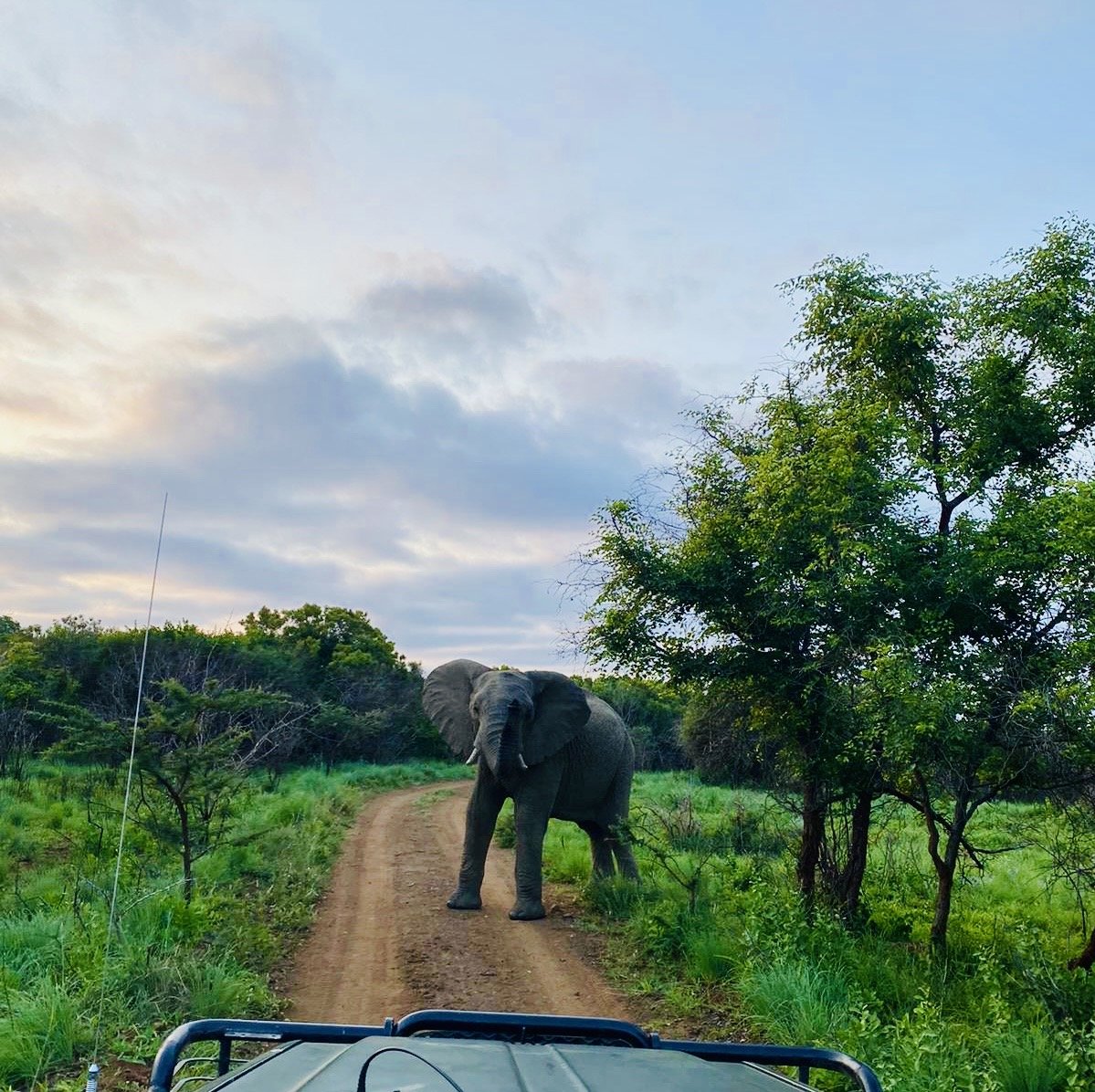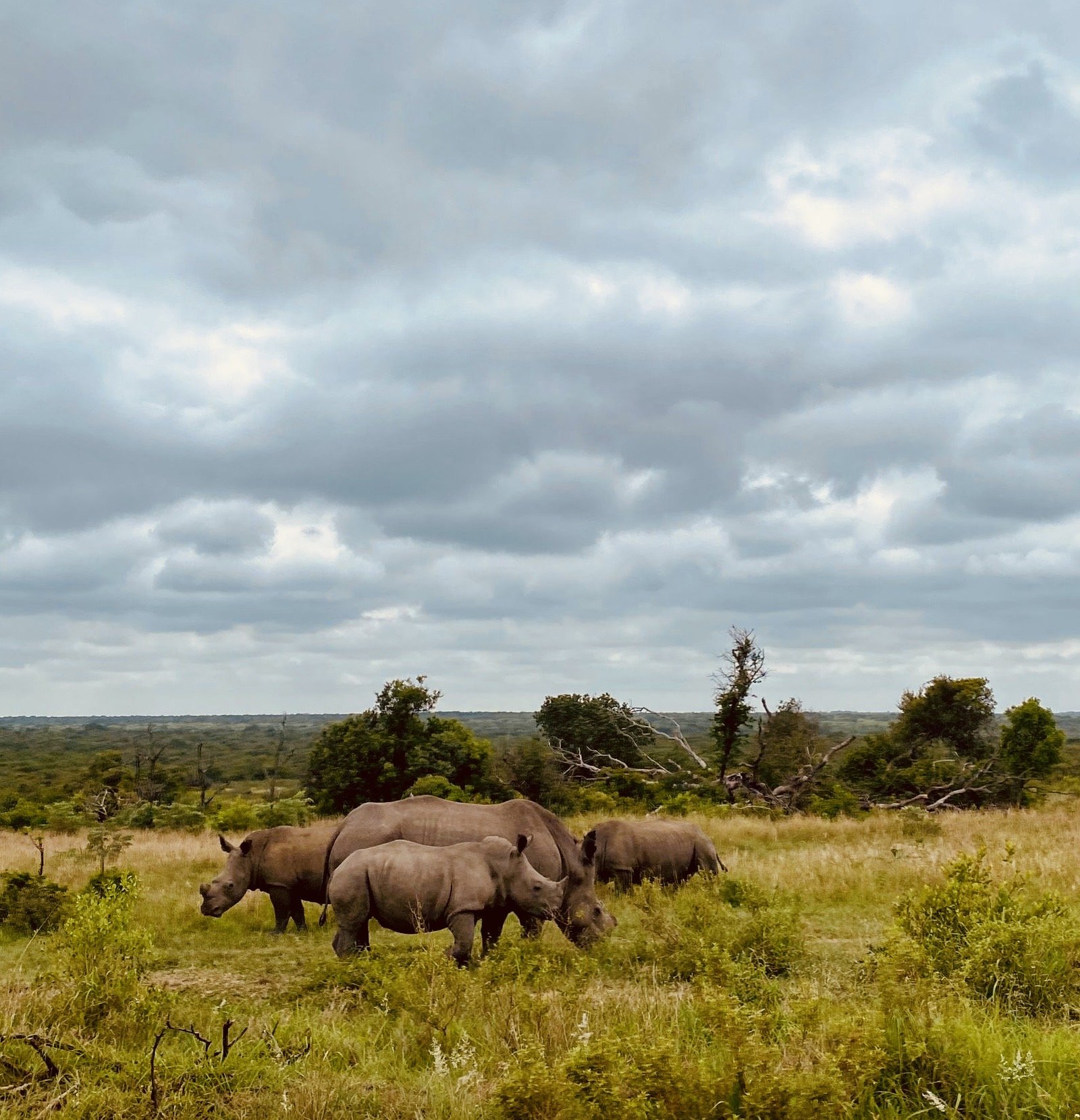
BIODIVERSITY
Diary from SOME OF THE MOST BIODIVERSE CORNERS OF THE EARTH
Article 05 | Natural Grace Founder, Grace Osborne
Ever feel completely in awe, energised and yet at peace when you’re breathing in nature?
I’ve been on a mission to learn how the bid to conserve biodiversity*, can empower both planet and people. During the last two months of 2023 I spent time at the base of Kilimanjaro and in 73,000 acres of restored land in South Africa, learning about quantifying, financing, conserving and restoring biodiversity. This had me out in the bush at 4:30am every morning to research and monitor species, cruising through 7 spectacular habitats, from mountain ranges, grassland, wetland and sand forests, interspersed with rivers, marshes and pans.
This quest started in Tanzania at the base of Kilimanjaro, one of the most biodiverse countries on the planet, with 55,000 confirmed species. I spent some time at the College of African Wildlife Management learning about various conservation methods and the challenges of financing conservation. You might be as surprised as I was, to learn that one of the key means of financing conservation is through hunting. According to the Tanzania Hunting Operators Association, 65% of the conservation funding in Tanzania is derived from hunting revenues.
To me, this sounds counter intuitive, but as I learnt more, the nexus around conserving biodiversity is incredibly complex. For a start, measuring and quantifying nature is a substantial challenge - how do you put a value on pieces of a system, all of which are fundamental to life on earth? And crucially, how do you benefit the people that know the most about these areas, the local communities?
This took me on a 22 hour journey out to the bush in Phinda, South Africa. Phinda comprises of 73,800 acres of restored farmland, 7 habitats, and is home to Africa’s big 5, situated in one of the world’s biodiversity hotspots, The Maputaland complex. Getting to the extremely remote research house took 5 hours from Durban and as we grew closer we started encountering giraffes wondering out in front of us, zebras crossing and rhinos in the distance. I really could have cried with happiness, being in nature always brings me such overwhelming peace and a sense of presence I struggle to find in every day life. I was completely in awe of these creatures, their intricate design and detailing was astonishing and the way they moved was incredibly majestic. The birds, the trees, lakes, mountains and animals worked in perfect synchronicity. I couldn’t help but smile watching the swishing tails of the (incredibly peachy - like to think I look like this in our leggings) zebras, as the bright orange sun set on my first night in the bush.




Every morning we were up and out with the sunrise, before the day got too hot, using drones, and satellite technology to track and to collect data on populations and behaviour of elephants, rhinos, lions, cheetah’s and pangolin’s. This data was used to monitor the impact of population or decline of certain species on the ecosystem as a whole.
Much of Phinda’s land is owned by local communities and research and ecotourism has benefited both conservation efforts and local people. It has been part of the WWF Black Rhino Range Expansion Project (BRREP) and Rhinos without borders, one of the WWF’s most successful conservation projects to date, as white rhinos are classified by the IUCN as ‘near threatened’, predominantly due to poaching driven by demand for their horns.
Cruising through the bush in the early hours of the morning, from the sun rising through to the sun setting, watching nature at play, taking in the diverse symphony of sounds around me, and dense layers of vegetation working in perfect tune with one another, I felt so alive and so at peace. I couldn’t help but notice over the time I was there that we saw animals fight, love, feed, run, sleep - all the things that we do as humans, yet somehow it feels like we live in a world that is insistent on disconnecting us from nature, our nature. Separation from nature is not only allowing vast destruction to the planet, but it’s hurting our health and sense of feeling free and alive.
To date discussions around protecting nature have been orientated around the value it holds to GDP. To me, this seems like an odd take given human existence depends on nature. I once read,
If trees gave us wifi we might stop cutting them down, shame they only give us the oxygen that we need to breathe!
I think this sums up the problem so well! Biodiversity is completely fundamental to human existence and well-being and we need to reorientate how we value nature, and prioritise looking after our natural home so it can look after us.
For all those that love being out in nature, prioritise it, and continue to be one of the rebellious wild child’s that breaks free from the daily constraints and reconnects with nature.
I’ll share more stories from my trip shortly!
*Biodiversity is all the different kinds of life you’ll find in one area—the variety of animals, plants, fungi, and even microorganisms like bacteria that make up our natural world. Each of these species and organisms work together in ecosystems, like an intricate web, to maintain balance and support life. Biodiversity supports everything in nature that we need to survive: food, clean water, medicine, and shelter. WWF

